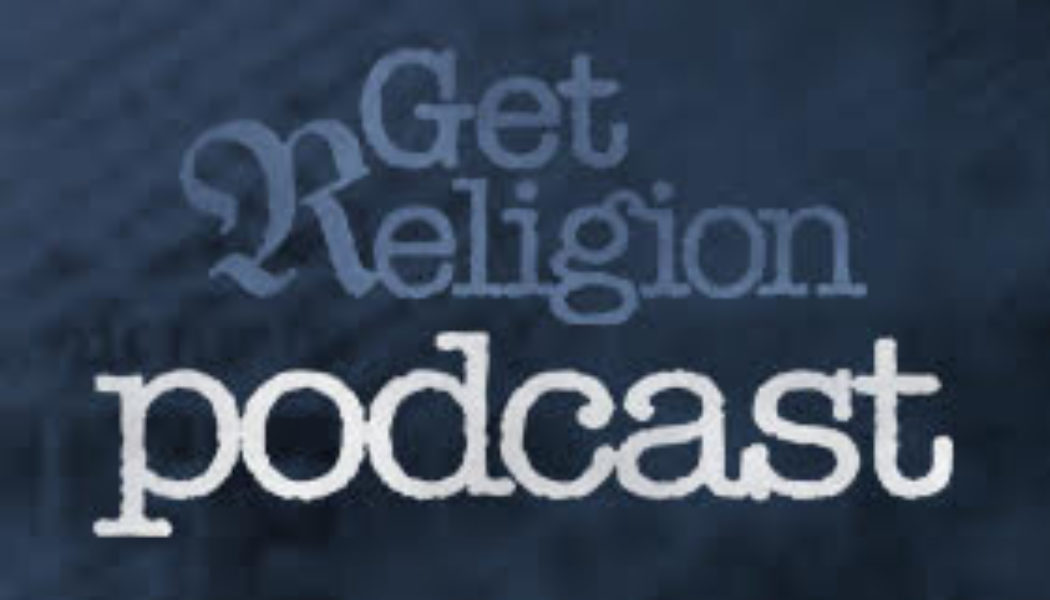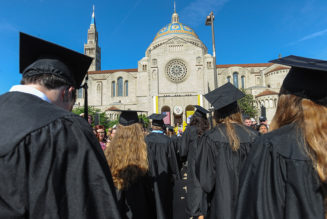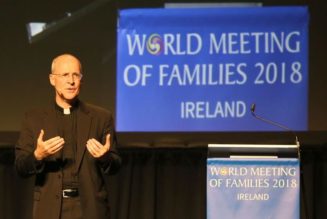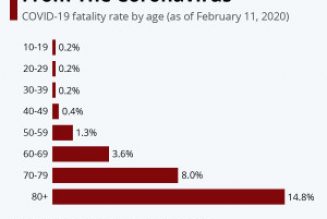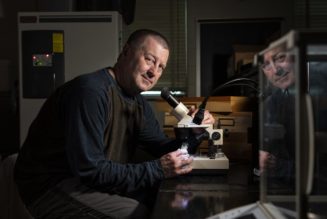Let’s say that, at some point in the future, multimedia crews manage to discover where President Joe Biden was attending Mass on a given Sunday.
As the president attempts to leave, journalists shout an obvious question, something like: “Mr. President! The U.S. bishops are almost done with the final draft of their document on abortion, politics and Holy Communion. Are you concerned about this?”
Recently, Biden responded to a similar question by saying: “”That’s a private matter and I don’t think that’s going to happen.”
This kind of language, that specific doctrinal issues are “personal” or “private,” has been part of American Catholic code ever since the famous 1984 address at the University of Notre Dame by the late New York Gov. Mario Cuomo. But let’s say — as I suggested in this week’s “Crossroads” podcast (CLICK HERE to tune that in) — that Biden decides to tweek this reply at some point in the future.
What would happen if he said this: “That’s between me and my father confessor, so I will have no response at this time.”


This response would have several implications. First of all, it would mean that Biden is saying that he (a) has a father confessor, (b) that he has gone to confession, (c) that he has confessed his sins, (d) that his confessor has assigned him some for of penance and (e) absolved him of his sins. That last part, of course, could be assumed if Biden is receiving Holy Communion.
Oh, and there’s one implication here: That this is happening with a blessing, to one degree or another, from the bishop in authority over Biden’s father confessor. Ah, there is the main news hook.
The bishop and the priest would not, of course, discuss the contents of the president’s confessions. The bishop, however, could say that Biden’s ongoing actions clashing with church doctrines — linked to abortion, same-sex marriage, trans advocacy or some other issue — require the denial of Holy Communion since these actions are, under Catholic doctrines, a threat to the president’s eternal soul.
After all, as the journalists (and canon lawyers) at The Pillar recently noted:
The Catechism of the Catholic Church also teaches that “anyone conscious of a grave sin must receive the sacrament of Reconciliation before coming to Communion.”
The Catechism quotes St. Paul, who noted the grave spiritual harm which reception of Communion in a state of sin can do to a Catholic: “Whoever, therefore, eats the bread or drinks the cup of the Lord in an unworthy manner will be guilty of profaning the body and blood of the Lord.”
The Church’s disciplinary laws follow Catholic doctrine on the subject. Canon 915 of the Code of Canon Law provides that Catholics “obstinately persevering in manifest grave sin” are to be denied Communion.
In 2004, Cardinal Joseph Ratzinger, then head of the Congregation of the Doctrine of the Faith, and later Pope Benedict XVI, told the U.S. bishops that the canon could apply to politicians who advocated legal protection for abortion, if they were warned by their bishops to stop their advocacy, and declined to do so.
Denial of the Eucharist under those circumstances is not formally a penalty in the Church’s law, but instead a pastoral directive aimed at preventing a person from doing harm to themselves spiritually, and from fostering scandal in a community.
This is one potential answer to the “What happens next?” question that religion-beat professionals should be asking. This is, clearly, a Biden-centric option. There is a chance, of course, that the president will simply remain silent and let his ecclesiastical defenders in red hats do the talking.
At the moment, it appears that the action will move to Capitol Hill. Consider this:
<div class="sqs-block embed-block sqs-block-embed" data-block-json="{"hSize":null,"floatDir":null,"url":"https://twitter.com/CatSzeltner/status/1405960359081566209","html":"
NEW: 60 Catholic Democrats in the U.S. House of Representatives issued a "Statement of Principles" with a message to U.S. bishops that "the weaponization of the Eucharist to Democratic lawmakers for their support of a woman\u2019s safe and legal access to abortion is contradictory". pic.twitter.com/IeR3gSbzDJ
— Catherine Hadro (@CatSzeltner) June 18, 2021
\n","width":550,"height":null,"resolvedBy":"twitter","providerName":"Twitter"}” data-block-type=”22″ id=”block-yui_3_17_2_1_1624555100653_124188″>
NEW: 60 Catholic Democrats in the U.S. House of Representatives issued a “Statement of Principles” with a message to U.S. bishops that “the weaponization of the Eucharist to Democratic lawmakers for their support of a woman’s safe and legal access to abortion is contradictory”. pic.twitter.com/IeR3gSbzDJ
— Catherine Hadro (@CatSzeltner) June 18, 2021
Then again, the language of this statement — note the “weaponization” reference drawn from progressive bishops — harkens back to the logic of the Cuomo era.
“The Sacrament of Holy Communion is central to the life of practicing Catholics, and the weaponization of the Eucharist to Democratic lawmakers for their support of a woman’s safe and legal access to abortion is contradictory. …
“We solemnly urge you to not move forward and deny this most holy of all sacraments, the source and the summit of the whole work of the gospel over one issue.”
That is so, so pre-Twitter. But it is possible that some of the signees could take further action.
Like what? The answer to that question is now obvious.
<div class="sqs-block embed-block sqs-block-embed" data-block-json="{"hSize":null,"floatDir":null,"url":"https://twitter.com/tedlieu/status/1405977654226931712","html":"
Dear @USCCB: I\u2019m Catholic and I support:
-Contraception
-A woman\u2019s right to choose
-Treatments for infertility
-The right for people to get a divorce
-The right of same sex marriageNext time I go to Church, I dare you to deny me Communion. https://t.co/bUmiyJ8TtH
— Ted Lieu (@tedlieu) June 18, 2021
\n","width":550,"height":null,"resolvedBy":"twitter","providerName":"Twitter"}” data-block-type=”22″ id=”block-yui_3_17_2_1_1624476497749_46421″>
Dear @USCCB: I’m Catholic and I support:
-Contraception
-A woman’s right to choose
-Treatments for infertility
-The right for people to get a divorce
-The right of same sex marriageNext time I go to Church, I dare you to deny me Communion. https://t.co/bUmiyJ8TtH
— Ted Lieu (@tedlieu) June 18, 2021
Rep. Ted W. Lieu represents California’s 33rd Congressional District, which is located in north and west Los Angeles County. He has a law degree from Georgetown University and, this is crucial, a 100% positive legislator rating from NARAL Pro-Choice America.
So, who is the bishop with whom Lieu is playing a high-stakes (in terms of doctrine, not politics) game of chicken? That would be Archbishop Jose Gomez of Los Angeles, the current president of the U.S. Conference of Catholic Bishops and the point man for efforts to find clarity on issues of “Eucharistic coherence.”
But here is the key: Think back to that “father confessor” language I discussed earlier. Lieu has jumped right over that option and called out his own bishop.
Read the key line again: “Next time I go to Church, I dare you to deny me Communion.”
As you would expect, the canon lawyers at The Pillar have parsed this language, as well, and plugged it into Canon 915. In this case, it also helps to note Canon 916, as well:
Can. 915 — Those who have been excommunicated or interdicted after the imposition or declaration of the penalty and others obstinately persevering in manifest grave sin are not to be admitted to holy communion.
Can. 916 — A person who is conscious of grave sin is not to celebrate Mass or receive the body of the Lord without previous sacramental confession unless there is a grave reason and there is no opportunity to confess; in this case the person is to remember the obligation to make an act of perfect contrition which includes the resolution of confessing as soon as possible.
Now, think about this in terms of public actions, headlines and television camera crews. Here’s The Pillar:
Does Gomez have to prohibit the Congressman from receiving the Eucharist? Certainly, Catholics who have heard tough talk from bishops on that subject over the past few months will expect that he will. And Lieu himself seems to have “politicized” the Eucharist by framing reception of Holy Communion into an act of implicit challenge of his own archbishop.
Few canon lawyers would have difficulty classifying Lieu’s tweet as evidence of “obstinate perseverance in manifest grave sin,” the criteria by which a Catholic can be denied the Eucharist.
But if Gomez does prohibit him, Lieu will surely wear the prohibition like a badge of honor, to borrow a phrase from Cardinal Timothy Dolan. And, more important, other pro-choice Catholic politicians will probably try to provoke their bishops as well. The whole thing could become an escalating movement, fueled by a social media backlash against the bishops and support from the nation’s leading newspapers.
Ah, the “nation’s leading newspapers” would play a crucial role in this doctrinal discussion. This would be a major consideration for several shepherds who, once again, wear red hats. However, it should be noted that Gomez — a man of color who leads America’s largest diocese — does not wear a red hat. Coincidence?
In conclusion, let me suggest two other newsworthy topics that are much more likely to be mentioned in the USCCB document on “Eucharistic coherence” than the name of the president of the United States.
Remember these 2019 numbers from the Pew Research Center?
Transubstantiation — the idea that during Mass, the bread and wine used for Communion become the body and blood of Jesus Christ — is central to the Catholic faith. Indeed, the Catholic Church teaches that “the Eucharist is ‘the source and summit of the Christian life.’”
But a new Pew Research Center survey finds that most self-described Catholics don’t believe this core teaching. In fact, nearly seven-in-ten Catholics (69%) say they personally believe that during Catholic Mass, the bread and wine used in Communion “are symbols of the body and blood of Jesus Christ.” Just one-third of U.S. Catholics (31%) say they believe that “during Catholic Mass, the bread and wine actually become the body and blood of Jesus.”
In other words, the vast majority of Americans who consider themselves Catholics are, on this defining document, low-church Protestants.
Then there is the declining number of American Catholics who go to Confession. Maybe, just maybe, the U.S. bishops need to consider a pastoral letter addressing whether or not Catholics still believe that “sin” is real and that “manifest grave sin” has something to do with eternity and the state of their souls?
Enjoy the podcast and, please, pass it on to others.
FIRST IMAGE: Image drawn from the Reason and Theology website.
